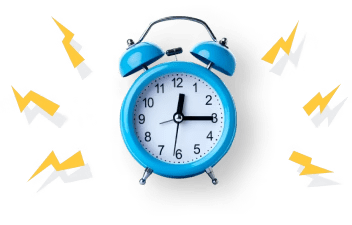Table of Contents
ToggleLibrary Research Tips for Evidence-Based Nursing
For high-quality patient care in nursing, evidence-based practice is critical. EBP means using the best and current evidence in patient care. When EBP mixes clinical skills and patient preferences, it gives the right to make better decisions. Good library research is vital for nurses to find trustworthy, evidence-based information. This guide provides tips for using library resources effectively for evidence-based nursing practice. Let’s dive in and make you a pro at finding the best nursing info.
What is Evidence-Based Practice in Nursing?
EBP, or evidence-based practice, is considered the best database in healthcare. EBP is about making intelligent decisions by combining the best research, your skills, and the patient’s wants in nursing. In this way, a nurse’snurse’s care is top-notch and tailored to each patient.
Best Available Research Evidence
The latest the information and the more credible the references, the more likely the research will go smoothly. Use the latest studies and info from trusted sources like medical journals and clinical trials. These give you the freshest and most reliable facts about nursing practices. Moreover, your focus should be on top-quality studies. The best ones are designed and tested well.
Clinical Expertise
Get hands-on experience with the skills you pick up through training and on the job. This includes understanding clinical guidelines and applying research in real life. Use your brain to determine how the research applies to the patient. To make informed decisions, evaluate the evidence quality, consider the patient’s situation, and use it accordingly.
Patient Preferences and Values
Remember, each patient has unique likes, values, and cultural backgrounds. Good nursing means involving patients in their care, understanding their concerns, and respecting their choices. The more you value the patient, the more comfortable they feel. Being a nurse means not only taking care but also doing the job. Being a nurse comes with significant responsibilities, including listening to patients’ preferences and ensuring that the patient is comfortable.
Work with your patients to make decisions together. Explain the evidence, discuss the pros and cons of different options, and help them make informed choices about their care. As they are unaware of any medical terms, as a nurse, you can help them make any critical decision for their health.
Why is Evidence-Based Practice Important in Nursing?
Evidence-based practice is a mutual practice. The latest research, combined with nurse skills and patient preference, is the best way to provide the best care possible to any patient through evidence-based practice. This approach works every time and not only helps patients but also supports the growth of the profession. Practical nurses can seamlessly keep their practice current, effective, and patient-focused.
Here is why EBP is essential in nursing.
- Better Patient Outcomes: Using the best evidence means you can help patients get healthier and improve their quality of life.
- Higher Quality of Care: EBP promotes best practices, leading to better and more consistent care.
- Professional Growth: Staying up-to-date with the latest research helps you keep learning and growing in your career.
- Cost-Effective Care: Evidence-based methods can reduce unnecessary tests and treatments, saving patients and the healthcare system money.
Utilizing Library Resources for Evidence-Based Nursing
Research in a library seems daunting, but with the right approach, it can be managed without any stress. First, figure out precisely what you want to learn. This is your research question, and it helps you stay focused. Use the PICO method to break it down:
P (Population): Who are you studying?
I (Intervention): What treatment or action are you looking at?
C (Comparison): Is there a different treatment to compare it to?
O (Outcome): What result are you hoping to see?
For example, suppose you’re curious about a new treatment for wounds in older people. In that case, your question might be: “In elderly patients (P), how effective is the latest wound care treatment (I) compared to standard treatment (C) in promoting healing (O)?
Next, plan how you’ll you’ll find the information. Pick out keywords related to your question. For the example above, keywords might be “wound care,” ” elderly patients,” ” healing,” and ” treatment.”
What Literature Databases Can Be Used to Search for Evidence-Based Practice?
There are many databases and online libraries where you can find authentic and credible evidence-based practice. Some of the top ones are below.
- PubMed: A massive database for medical and healthcare studies, including nursing. It’s where you find lots of peer-reviewed articles and clinical studies.
- CINAHL: This one’s focused on nursing and allied health, offering many resources specifically for nursing research.
- Google Scholar: A free search engine for academic articles from various disciplines. Great for a wide range of studies.
- Cochrane Library: Famous for systematic reviews and meta-analyses in healthcare. It’s fantastic to find high-quality evidence.
Applying Library Research in Nursing Practice
Alright, so you’ve found some solid research. Now what? Don’t know what to do with all the information? No worries—these tips will make your research look professional and flawless. Just trust the process once, and you won’t regret it.
Critical Appraisal
You need to judge the quality of the research. Is it reliable and relevant to your patient? Look at the study design, sample size, and whether the conclusions make sense. If it’s top-notch, it’s worth considering.
Clinical Guidelines
Check out the guidelines that sum up the best evidence. These are like cheat sheets made by experts. They take all the best studies and tell you what the best practices are.
Patient Care Plans
Please use what you’ve learned from the research and the guidelines to create a personalized care plan for your patient. Make sure it fits their specific needs and situation.
Check out the sample papers of the NHS FPX 4000 assessment.
- NHS FPX 4000 Assessment 2 Applying Library Research
- NHS-FPX4000 Assessment 3 Applying Ethical Principles
- NHS-FPX4000 Assessment 4 Analyzing Healthcare Issues
Some Examples of Nursing Evidence-Based Practice
- Pressure Ulcer Prevention: You know those nasty bedsores? Research shows that regularly repositioning patients and using special mattresses can prevent them. So, follow the protocols that say how often to move patients and what kind of mattresses to use.
- Pain Management: Pain sucks, and managing it well is super important. The latest research suggests using multiple methods to manage pain—like combining meds with physical therapy and relaxation techniques. This mix can help patients feel better.
- Infection Control: Keeping things clean is crucial in healthcare. Evidence-based measures like proper hand hygiene and sterilization techniques have been shown to reduce hospital infections. Follow these practices strictly to keep your patients safe.
How Can I Ensure the Credibility of a Source?
It is essential to look for the source of any research and find out where it is coming from. Is it great to use or not? To ensure the source is legit, you can look up the author and identify whether they have the right background and experience. Are they experts in the field? If they have a PhD or are a well-known researcher, that’s a good sign.
Moreover, see where the article is published. Is it in a respected journal or website? Peer-reviewed journals are usually the best because other experts review them before publication.
Bottomline
Hence, we have concluded that library research is the key to evidence-based nursing practice. Using databases from online sites and libraries, any nurse can quickly evaluate sources and apply those research skills to practice. This will help more nurses grow professionally and achieve their career goals. Use these tips to become a pro at finding the best nursing info and excel in evidence-based practice.








